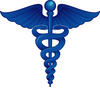Dr. Karen Zempolich, Gynecological Oncologist, shares information that you should know.
___________________________________________________________
CERVICAL CANCER
• In the U.S., an estimated that approximately 11,150 women will be diagnosed with and 3,670 women will die of cervical cancer this year.
• Cervical cancer can usually be prevented if precancerous cervical lesions are found by a Pap test and treated.
• In 2006, 74% of Utah women reported having a Pap test in the past three years.
• About half of the women in the United States who develop cervical cancer have never had a Pap test.
LINK BETWEEN CANCER AND HUMAN PAPILLOMAVIRUS (HPV)
• HPV causes 99.7% of cervical cancer.
• HPV may also play a role in the development of other cancers.
WHAT IS HPV?
• The human papillomavirus (HPV) is a common virus.
• HPV is transmitted through skin-on-skin genital contact and cannot be entirely prevented by condom use.
• This virus is often asymptomatic—people usually don’t know they have it. Most HPV infections go away without treatment.
• 50% of sexually active adults will have HPV at some point in life.
HPV VACCINE
• In addition to having a regular Pap test, the HPV vaccine offers another layer of protection against cervical cancer.
• The vaccine protects against 4 strains of HPV which cause 70% of cervical cancers and 90% of genital warts.
• Vaccination is not a substitute for routine screening with Pap tests because the vaccine does not protect against all HPV types that cause cervical cancer.
• This vaccine is given in a series of three injections over a six month period.
• Tests of the vaccine, Gardasil®, showed only minor problems upon injection. Some side effects include: slight fever and redness or irritation at the injection sight.
• The HPV vaccine is routinely recommended for girls 11 and 12 years of age. Additionally, it is recommended for girls and women 13 through 26 years of age who did not receive it when they were younger and may be given at the same time as other vaccines.
SERVICES
• Utah women aged 19-26, who have no insurance or whose insurance does not pay for the HPV vaccine may qualify to receive the vaccine at a low cost. Call 1-800-717-1811 for more information about these services and the location nearest you or visit www.utahcancer.org/prevent
• Qualifying adolescents and teens ages 9-18 may receive the vaccine through the Vaccines for Children (VFC) Program.
• There is a small fee charged to administer the vaccine
• Free cervical cancer screening is available to Utah women aged 50-64 at over 45 locations statewide call 1-800-717-1811 for the location nearest you.















Add comment